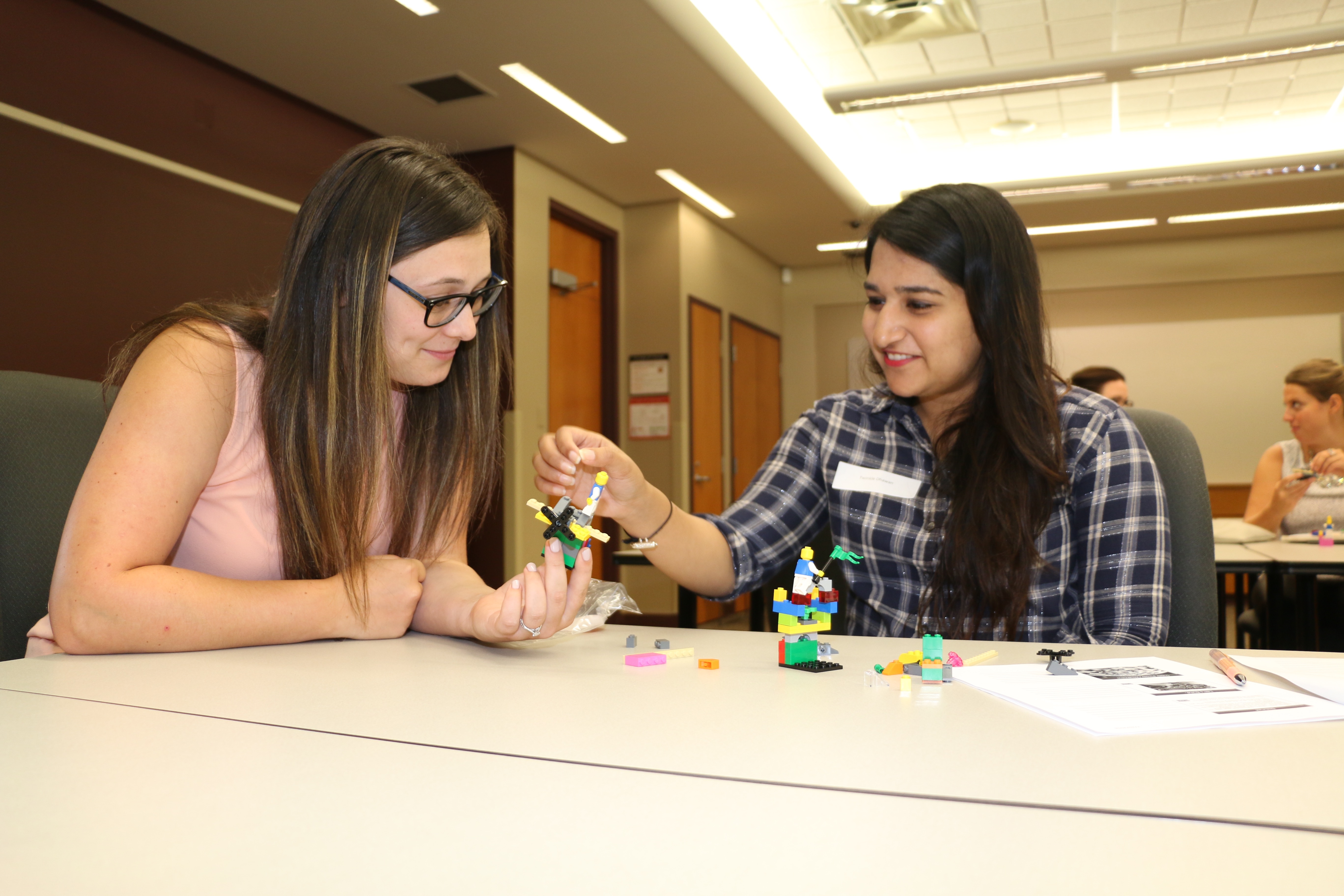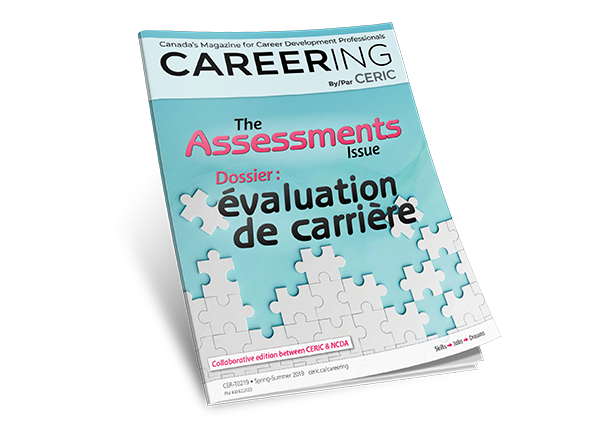
The power of play
June 5, 2019
The Spring-Summer issue of Careering dives into career assessments
June 5, 2019Engaging with a song that moves your client emotionally can reveal surprising insights about their interests, values and passions
Herky Cutler
If I asked you to name something that crosses generational, cultural, political and spiritual boundaries, moves people emotionally, changes moods, inspires people to be better, creates community, brings light to social injustice and simply entertains, what would you say that thing was?
Literature? Perhaps. Chocolate? A definite possibility. Music? Of course! Music is a powerful medium that everyone can relate to, and everyone uses music in many ways in their life. So, why not use music in career development?
Driving engagement through song
A long time ago, I wrestled with how to bring my passion for music into my professional life as an organizational consultant, speaker and trainer. And then it hit me.
What are we, as career practitioners, really looking for when we use assessments with our clients? Yes, we need the basic information from a client in terms of demographics, work experience, education and current situation. But what we really want is to get to know them – what they want out of life, what excites them and what dreams they have.
To find the answers, we would probably turn to an assessment tool – usually one we paid for – that measures employability, personality or occupational compatibility. All of these tools have merit. For me though, they lack what I consider to be the key in any relationship where one of the primary goals is change: engagement. If we don’t engage our clients deeply, how can we really help them change?
I’ll never forget my experience teaching a career course as a high school guidance counsellor, using a computer-based career interest inventory with students. I would ask a student, “What question did you just answer?” “Huh?” was the usual response.
The students weren’t engaged with this tool; they were just using it as a means to an end. Music, on the other hand, is highly engaging. I decided to put my theory to the test with some of the students who worked for me. I developed the following technique.
From theory to practice
The first person I tried this exercise with was a 16-year-old high school student I’ll call Will. Will was struggling in school, did a lot of drugs and showed real interest only in music, skiing and spending time with his friends. He brought in the song “Needle and the Damage Done,” by Neil Young. Will felt that the song was about social justice, conformity and rebellion. Through our discussion, many of Will’s characteristics, values and passions jumped out at me, including:
- Non-conformist
- Risk-taker
- Leader
- Creative
While this exercise didn’t point Will toward a specific occupation, I suggested he reference the list I created when considering what types of work might make him happy.
How to use music as a career development assessment tool
Step 1: Ask your client to bring in a song that moves them emotionally. It can’t be just a song that they like. It has to move them deeply in some way. Instrumentals are fine, too.
Step 2: Find a video for the song and watch it together.
Step 3: Print a copy of the lyrics and have a conversation about them, asking a variety of questions. I have a list of general questions I ask in addition to others that pop into my head as we have the conversation. Some examples are:
- Why did you choose this song?
- What does this song mean to you?
- What do you think the writer is trying to say about him/herself or about the world?
- How does this song move you?
Step 4: While your client is answering the questions, make notes about their interests, values and passions.
Step 5: Once all the questions have been answered, go over your notes with the client. Ask them if what you wrote resonates with them. Ask them if there are any surprises and what those are. Once the discussion is over, hand the client your notes.
Tips
- Make no judgment about the song the client brings in, even if it contains inappropriate images or language, unless you’re working with a group of people and you feel the song may offend others. If that’s the case, ask the client to choose another song.
- Don’t share what you know about the song if it’s familiar to you, especially if you think the client’s interpretation of the song is “wrong.” It doesn’t matter. What matters is the impact the song has on the client.
- When you’re making notes about the client’s interests, values and passions, make sure you use their words, not yours. Accuracy is very important in assessment. If you’re using your interpretation of what the client is saying, and not what the client is actually saying, it may not be accurate.
- When you hand the client your notes, emphasize that what you wrote down cannot then be translated into determining an occupational path for the client. However, it’s fair to encourage the client to use those notes whenever they find themselves researching occupations or working. Does the occupation or job reflect the things that are important to the client, which he/she articulated from the analysis of the song?
- This technique is another tool to add to your collection. It may not be appropriate for all of your clients, but if you feel your client is willing to take a bit of a risk, ask if they want to give it a try.
Conclusion
If you try this technique and your experience is like mine, you’ll be amazed at how engaged your client is in this process. Remember, this activity is client-driven; you will be talking about music that is important to the client, not evaluating answers to a career interest inventory they may have difficulty understanding the purpose of.
In my opinion, our goal as career practitioners is to help the client discover who they are and help them articulate their interests, values and passions. We should do so in a way that engages them and helps build a strong relationship between practitioner and client.
Music has the capacity to do this because of its universal appeal and its ability to trigger deep and meaningful emotions within us. Try using music as a career development assessment tool and discover just how powerful it really is.
Herky Cutler is a Certified Career Development Professional, a lifetime member of the Career Development Association of Alberta and has been training career practitioners for more than 12 years. He has developed a number of unique career development tools and is a popular keynote speaker and presenter at conferences all over North America.

